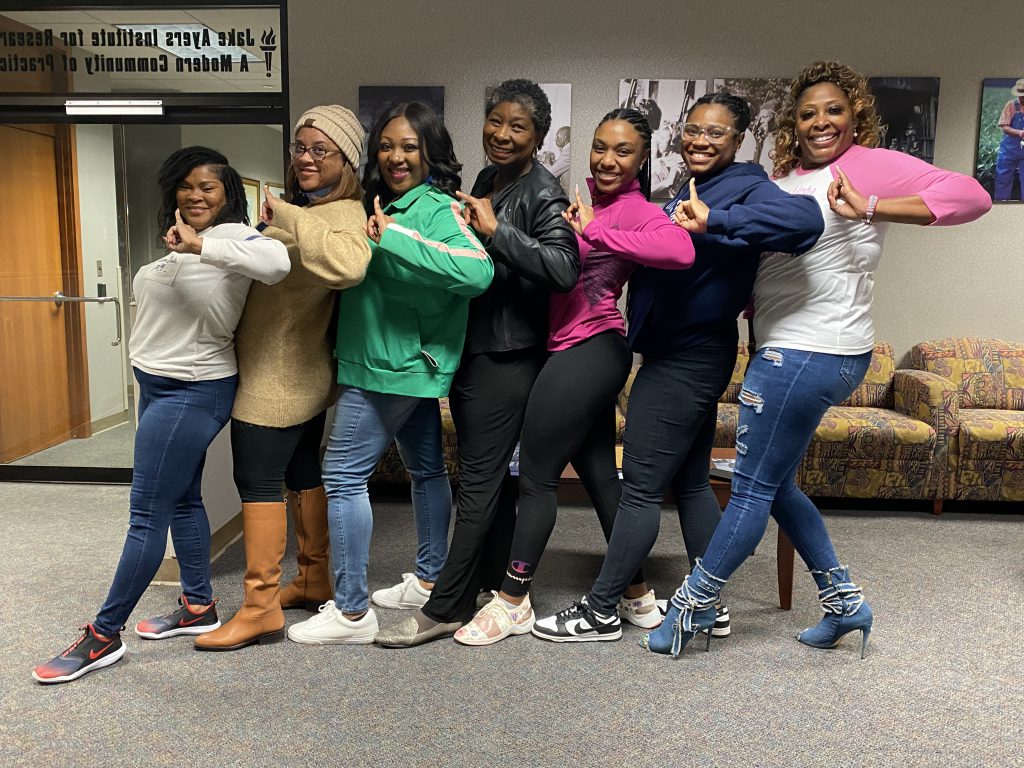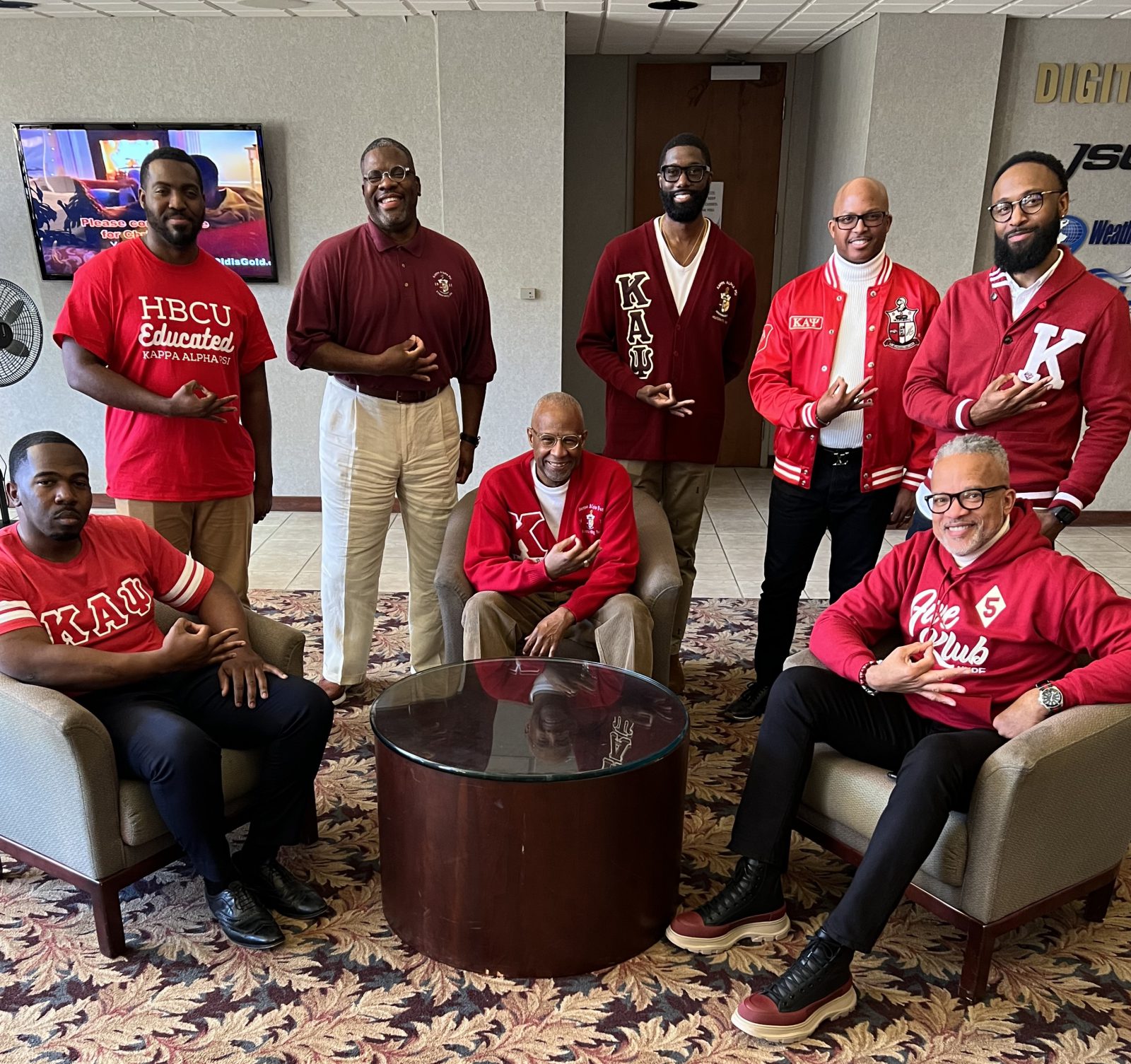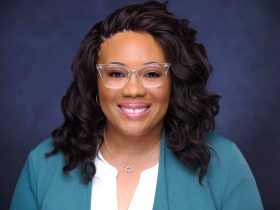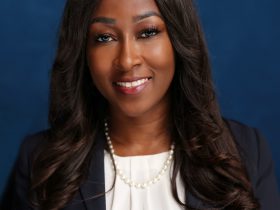As Jackson State University’s prominent Executive Ph.D. in Urban Higher Education (EPHD) programapproaches 20 years of developing transformative leaders, members of Alpha Kappa Alpha Sorority, Inc.and Kappa Alpha Psi National Fraternity, Inc. are well represented as current graduate students in the program. Although not created by design, Executive Director Walter A. Brown, Ed.D., said the program has attracted students from various service organizations, including Delta Sigma Theta Sorority, Inc., and Phi Beta Sigma Fraternity, Inc. over the years.
“Once the cohort is formed, it generates an even stronger bond among those who are members of certain organizations – fraternities and sororities. It tends to strengthen the work ethic within the cohort and the ability to work with one another because the program is intense and extremely taxing,” said Brown, who is a 50-year member of Kappa Alpha Psi.
The two-year intensive EPHD program is designed to prepare individuals for senior-level positions at various entities: academia, corporate, governmental, non-governmental or nonprofit.
“As the country continues to evolve culturally, the need for diverse leadership in higher education is essential” said Brown. “As a result, our program has experienced consistent enrollments and above average graduation rates for doctoral programs. Many of our graduates have filled critical senior level positions in higher education institutions.”
The list of prominent program alumni currently serving in higher education leadership include: George T. French, Ph.D., president of Clark Atlanta University; Larissa Littleton-Steib, Ph.D., Delgado Community College Chancellor; Braque Talley, Ph.D., vice president of Student Affairs at Alabama A&M University; Allen P. Vital, Ph.D., chief of staff of the Southern University System; and Melva K. Wallace, Ph.D., president and CEO of Huston-Tillotson University, to name a few.
JSU’s Executive Ph.D. program has distinguished itself by filling a crucial pipeline to help diversity the role of college president. According to a study by the American Council on Education, racial/ethnic minorities held only 17 percent of presidencies in 2017, while people of color comprised approximately 42 percent of college students in 2015.

Cohort 19 of the JSU EPHD program, which began in spring 2022, consists of 16 professionals, including seven members of Alpha Kappa Alpha Sorority, Inc., two members of Phi Beta Sigma Fraternity, Inc., two members of Delta Sigma Theta Sorority, Inc., and one member of Kappa Alpha Psi Fraternity, Inc. Among the 20 students in Cohort 18, there are six members of Kappa, four members of Delta, one member of Sigma, one member of AKA, and one member of Omega Psi Phi Fraternity, Inc.
Corey S. Edmonds is the assistant director of Undergraduate Admissions at North Carolina Central University. The Kappa Alpha Psi member is passionate about the history and legacy of HBCUs. His immediate goal is a senior-level leadership role.
Edmonds said, “Every article that speaks about HBCUs always talks about the relevance and what the implications are if we don’t support them. And part of me thinks that that’s not by mistake. We’re under-supported for a reason. The EPHD program actually combats that. It identifies that there’s a gap. It identifies that there’s a need for individuals like us and practitioners who want to move things forward.”
Prior to applying, Edmonds said he learned that others in his circle were alums of the EPHD program, including a couple of fraternity brothers in Cohort 17. “The thing that stood out to me is the cohort model and the support that was available. And as you look across the landscape of HBCU leadership, currently a significant amount of leadership has ties to JSU.”
Amanda Dear-Jones of Clarksdale, Mississippi, is a member of Alpha Kappa Alpha, and Cohort 19. The self-described social advocate is CEO and president of Family Youth Opportunities Division, Inc. The EPHD will be her fourth degree from JSU.
“This degree will help me be more credible because our focus is understanding marginalized community in an urban environment,” said Dear-Jones. “The program will help me be an independent thinker, and it will also give me creative avenues to be able to go into rooms that I’m not in yet or sit at tables that I haven’t been invited to, to be able to help make decisions, to transform not only life for myself, but those that come behind me.”
She described the union with her sorority sisters as “divine intervention.” She said the group meshes well together. “When it’s time to do big things, there’s no other way but the AKA way. We are leaders in education.”
Kappa Alpha Psi and Cohort 18 member Donald W. Comer is one of the few program participants not currently employed in higher education. His role as vice president of Decision Science and Analytics at FedEx in Memphis, Tenn., has offered opportunities to see how corporations and universities can collaborate meaningfully. He sees the EPHD program as a pathway to sustaining the legacy and future of HBCUs, including the two that he serves as a board member – Stillman and LeMoyne-Owen colleges.
“I’ve been pleasantly surprised with the applicability of the program’s content in my corporate position,” said Comer. “The EPHD program is all about doing research. Its broad-based applicability goes beyond the original intended purpose of mentoring college presidents or successful administrators in higher ed. It’s applicable in many other areas because of the quality of the content and the teaching. It’s also the mix of individuals who have personal experiences that punctuate what is being discussed in the classroom.”
Executive Director Brown predicts that JSU’s EPHD program will continue to thrive over the next 20 years because it is designed to train those who want a disciplined understanding of institutions, and particularly African Americans aspiring for top leadership positions.
“Remember the original mission of HBCUs,” advised Brown. “To provide higher education for African Americans who would not have had an opportunity to be admitted at other institutions at the graduate, master’s or Ph.D. levels. Access to other institutions may have changed, but the nurturing environment found in HBCU environments continues to set us apart for students to connect, achieve and thrive.”
For more information on the JSU Executive Ph.D. Program in Urban Higher Education, visithttps://www.jsums.edu/ephd/.
The original version of this article ran in the HBCU Times summer 2023 issue.
# # #








